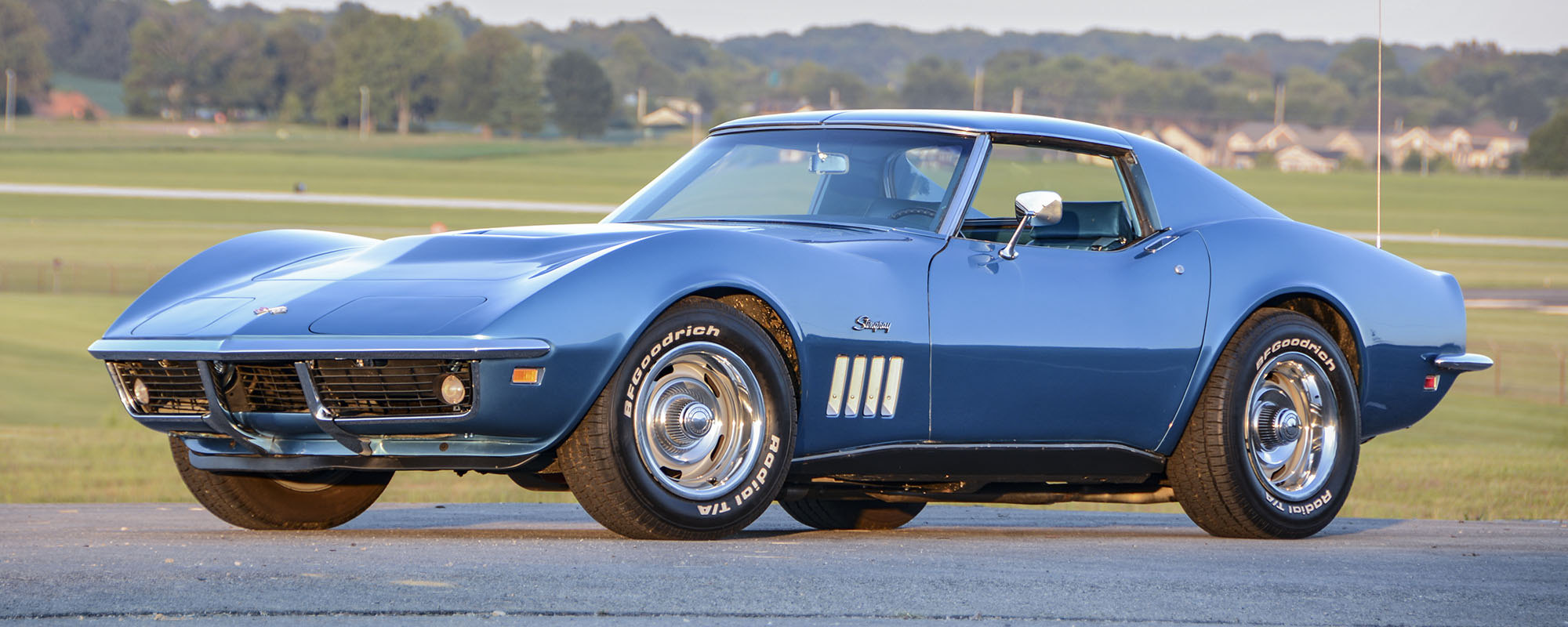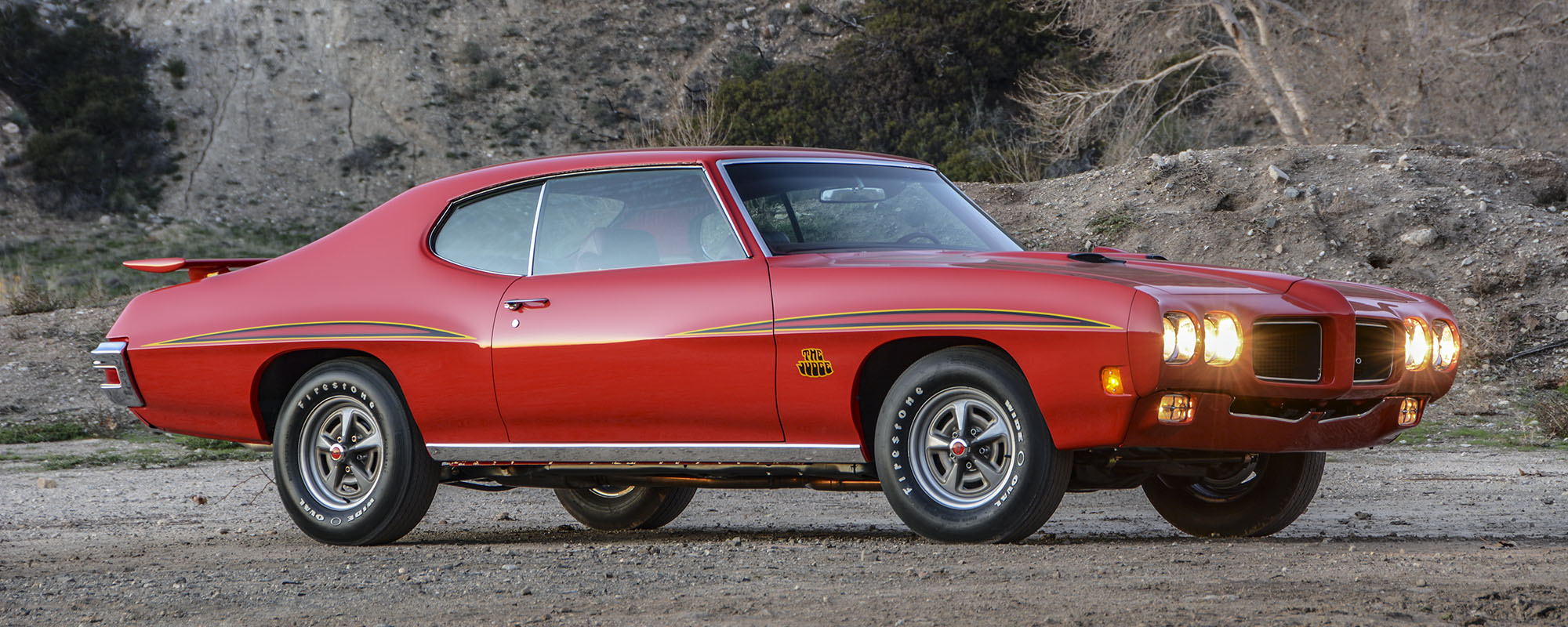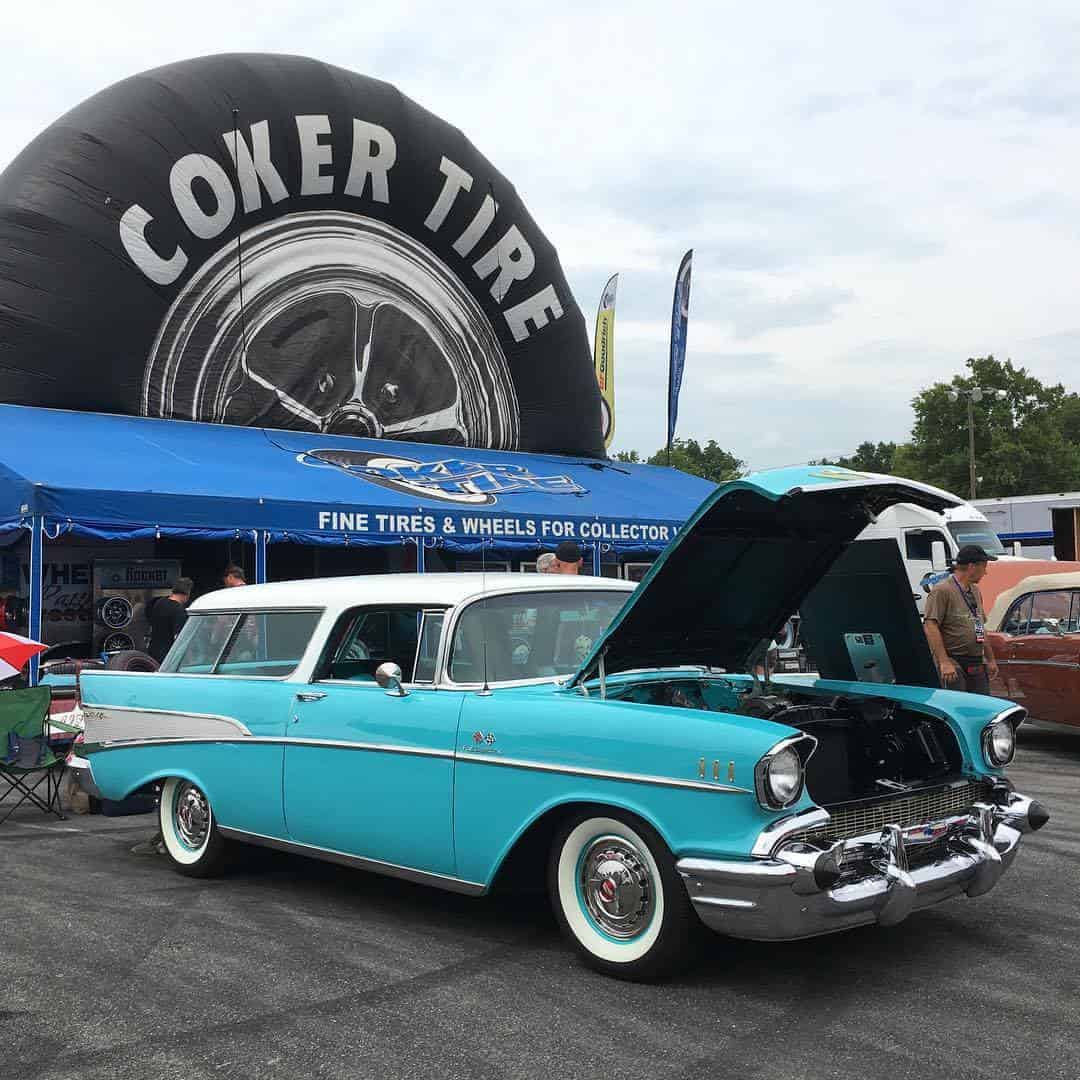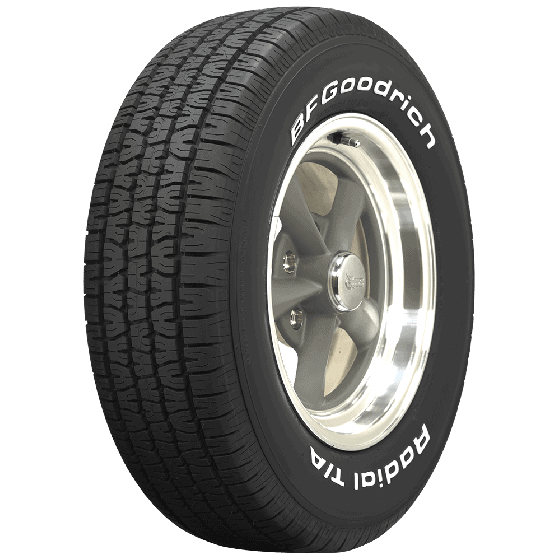Sometimes, a poor tire choice is a matter of cost, because specialty tires, like wide whitewalls and redlines are more expensive than your run-of-the-mill radials from the local department store.
It has been proven that cars with authentic tires and wheels bring more money at auction, but we also like to believe that a classic car looks best when its rolling on period correct tires and wheels.
For hot rods and custom cars, tire and wheel selection revolves around style and stance, and that can strictly be a matter of preference. For pure restorations, it’s about bringing a car back to its original condition.

A generic radial tire from the local department store doesn’t accomplish any of those goals, so Coker Tire has found its niche by manufacturing tires and wheels that are purpose-built for collector cars. Coker Tire has been in business since 1958, slowly transitioning from a local service center into the world’s largest supplier of tires and wheels for collector vehicles. While Coker Tire’s main area of focus is wide whitewall tires, the Chattanooga, Tennessee based company offers many sizes, styles and brands to fit cars from the early 1900’s all the way through the modern era.
So, it all comes down to an important decision — bias ply or radial? The tire construction makes a big difference in ride quality and handling, and if you’re going for authenticity then it’s important to know what your car had from the factory.
In the case of American cars, bias ply tires were completely phased out by 1975, but European cars made the switch much earlier. It can sometimes be tough to tell what type of tires were installed at the factory, even when looking at the build sheet, and that’s where the crew at Coker Tire can help put the pieces together.
Sizes like 7.75-15 may not compute with today’s generation, who are only familiar with the popular P-metric sizing configuration, such as 205/75R15, but the various sizing nomenclature can help you determine the construction of the tire. For instance, a 1968 Ford Mustang could’ve come from the factory with a bias ply or a radial tire of the same size, and the only difference is the letter “R” in the size–F70-14 would be the bias ply size and FR70-14 is the radial. That can be a bit confusing but those small details matter, especially on a numbers-matching build.
With the numerous original tire options in mind, Coker Tire has filled its product catalog with popular brands such as BF Goodrich, Firestone, Michelin and U.S. Royal, and fitments for thousands of applications. While Coker Tire originally manufactured tires exclusively in bias ply form, it made a big step in 1995 with the introduction of the first wide whitewall radial tire.

Since then, wide whitewall radial tires have flown off the shelves year after year, and the popularity has encouraged Coker Tire to create more radial designs with popular designs, such as wide whitewalls, redlines, gold lines and more. Coker Tire’s most recent product line is the Firestone Wide Oval Radial, which has been wildly popular for muscle car enthusiasts who want the precise vintage look with the excellent ride quality of a radial tire.
Coker Tire’s highly trained sales representatives encourage enthusiasts to choose a tire based on the intended purpose of the vehicle. If it’s a concours-level restoration or a car that will be judged based on authenticity, then bias ply tires are a must. If it’s a car that will be driven on a regular basis, the radial tire may be your better option.
In terms of adding value to your car, bias ply tires are usually the top choice for American cars built before 1975. But if part of your car’s value is based on fun factor and enjoyment on the open road, the radial is the right choice for you.
Luckily, Coker Tire offers both construction styles in a wide range of fitments, giving you plenty of ways to maximize the value of your collector car. You can find out more about Coker Tire’s extensive line of authentic tires, wheels and accessories at www.cokertire.com.









Purchased coker redline radials for my 66 c2. Would not balance even with road force balancing. Wheels are fine. Not a wheel issue at all. They are real knockoffs and have never had a problem balancing. Tires took 5 to 6 ounces to even tolerate. The road noise is horrendous and the humming can be felt in the floorboards and steering wheel. A third of a pound is unacceptable. Coker thinks nothing of it. Talked to many people here in Scottsdale about it and few were surprised. Most likely issue is, along with shabby workmanship and pathetic quality control, an overlapping of the steel belts that will at some point cause the tire to self destruct or fail in any number of ways. The car is not driveable due to the mechanical damage possible along with what can happen to the body of the Corvette should one explode. Hesitated to buy coker and should have trusted my instincts. Now I’m stuck with $1300 in tires I can’t use. What are you going to do about it coker? Do you care? Not so far. You have my money and I’ve got crap for tires.